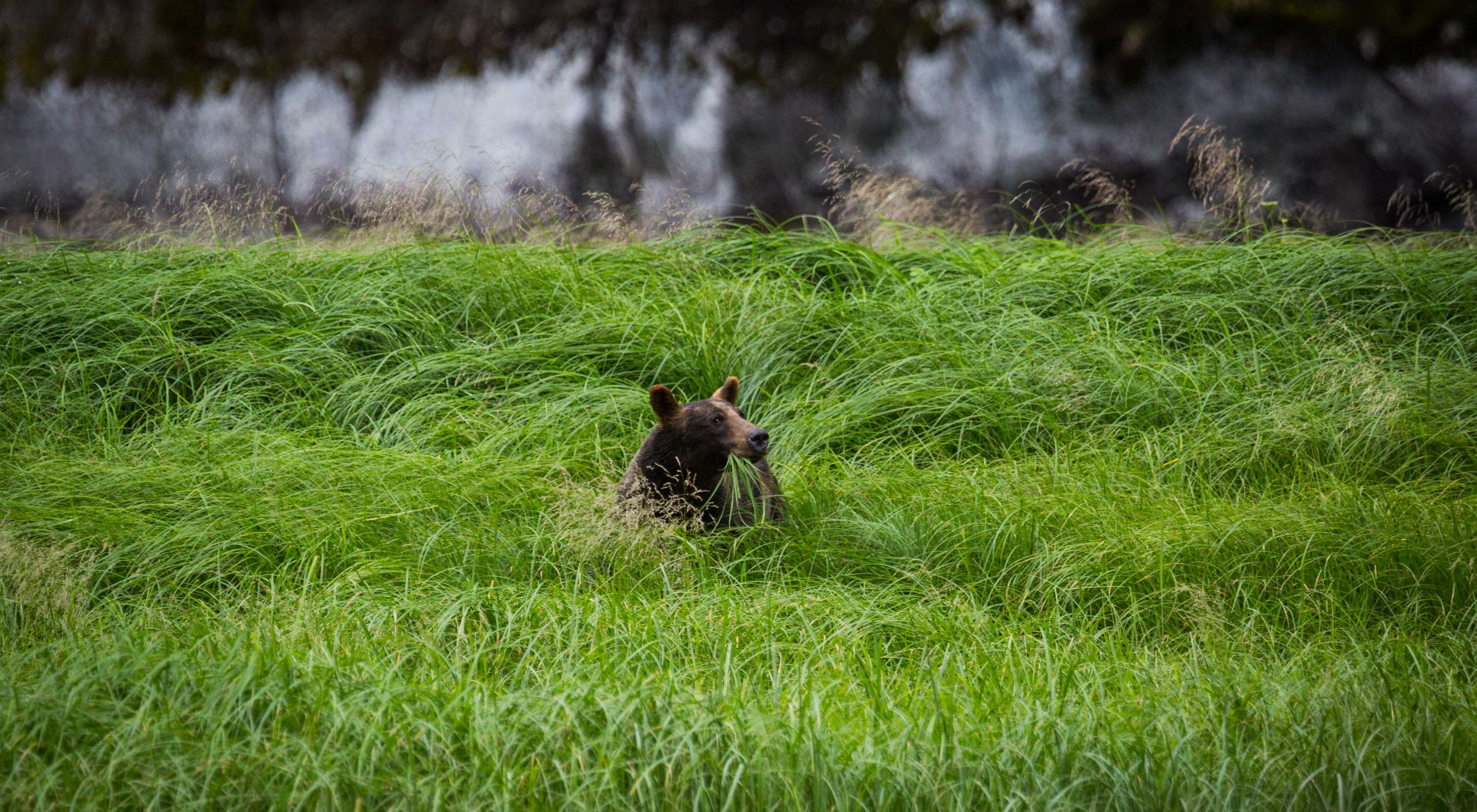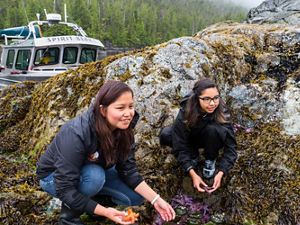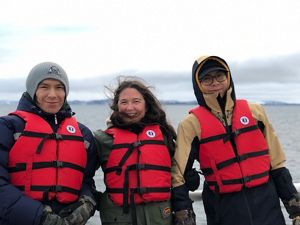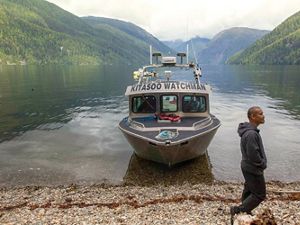Emerging Leaders in Kitasoo/Xai'xais
In Kitasoo/Xai’xais, an Emerging Leaders program is helping young people learn where they come from and who they can be.
By Lindsey Henning
“Bear safety is one of the first things we teach to our Emerging Leaders interns each summer.”
Vern Brown has been the Supporting Emerging Aboriginal Stewards (SEAS) Coordinator for the Kitasoo/Xai’xais community since 2016. Before every hike, he says, students take turns reciting safety procedures for recognizing fresh signs of nearby bears and how to prevent surprising bears on the trail. On this particular day, the group came across six grizzly bears on their way to a waterfall; none was startled by the students.
“This day was important because they saw for themselves and realized that the safety techniques work and will keep them safe.”
Nature United has supported SEAS, part of our Emerging Leaders initiative, in coastal British Columbia since 2009, giving students hands-on internships and other educational experiences to connect with the landscape and culture of their traditional territories. In Kitasoo/Xai’xais, where summer internships have been available to high school students since 2012, Vern’s top goals as coordinator are to expose his interns to as much of their territory as possible, inspire curiosity and show them that they have opportunities once they finish school.
Skills for Life on the Land
During a typical summer, interns spend a tremendous amount of time on the land hiking, fishing, swimming, harvesting seasonal plants, and visiting sacred sites. They develop skills they can transfer to careers—cataloguing medicinal plants, studying marine and terrestrial biology, speaking with archaeologists. And by spending time in conversation with community elders, the students develop a deeper understanding and connection to the territory they will one day steward.
“When they walk away from the program, they’ve developed a better idea of who they are,” he says. “Their own set of values, passions, love and ownership of the special places in their territory. I tell them to pick a tree, pick a clam bed, and love it. Protect it, because if you don’t maybe no one else will.”


Spiritual Moments
On one memorable hike, Vern remembers spotting a spirit bear after weeks of hoping. He took the students one at a time up to a safe overlook where they could watch the bear eat. “We could hear it crunching on fish—and it was just a special moment to witness and reflect on a summer filled with new experiences. It was a very spiritual moment.”
“The Knowledge is Already Inside Them”
Vern sees first-hand the way his interns gain a deeper sense of pride in their culture and communities. He says when it comes to exchanging knowledge, his students have as much to offer as he does. Every summer, he reminds his interns that they already know so much. He remembers a moment when he brought his group into the forest to visit a burial site in a nearby cave.
“The forest was quiet as we gathered, sitting on fallen trees in this sacred place. While I was talking about the burial process, I noticed that behind one of the logs were some ancient remains.”
Vern and the students did not feel right leaving this sacred site disturbed, so he asked the interns what they should do. One student suggested leaving something behind and that each should say who they are, using their traditional naming protocol. Vern remembers thinking that the knowledge is already inside of them.


Closing a Generational Gap
Often parents are involved in summer internships as well. Colonialization caused a generational gap in cultural knowledge; Emerging Leaders programs help reconnect young people and their parents through on-the-land learning opportunities. With limited access to boats, Vern makes it a goal to take everyone to a place they’ve never been before—maybe even the place where their family originally came from.
“Throughout the summer, all students become interested in talking about their experiences with their parents and grandparents. Everyone is learning and re-learning the history and culture—and it is now the students’ job to share their knowledge with their parents.”
“Who They Can Be”
Emerging Leaders school programs and youth internships incorporate on-the-land learning in hopes that students' eyes will be open to all of the possibilities that are waiting for them once school is over. Nature United is proud to support these community-designed, community-led programs in Kitasoo/Xai’xais and across Canada, helping to develop the next generation of leaders to steward lands and waters.
“Youth in our community represent the future stewards of our territory,” Vern says. “It is our Nation’s vision to reconnect young people to the Earth and their culture. To teach them where they come from and who they can be.”




